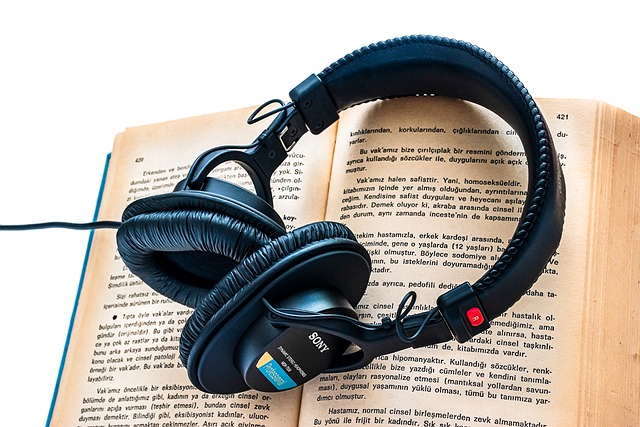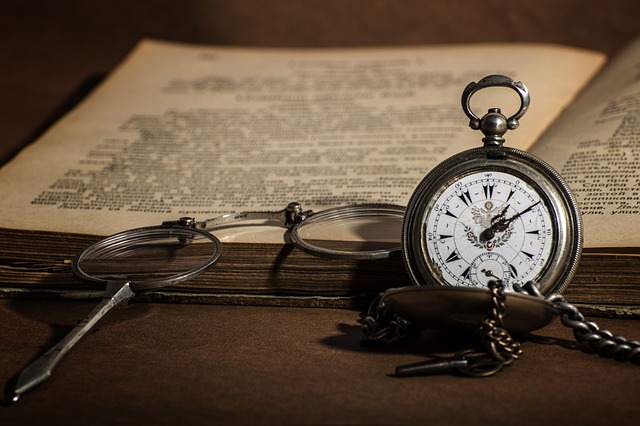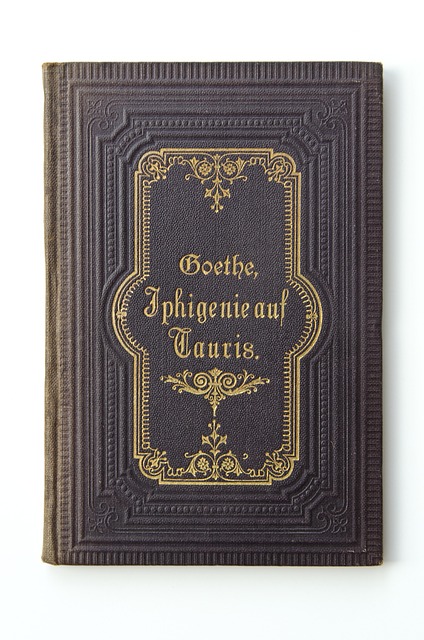German literature holds a pivotal role in the journey of mastering the German language. Beyond being a mere collection of words on paper, it is a gateway to cultural insights, linguistic nuances, and a deeper appreciation of the language’s intricacies. From classic works that shaped German history to contemporary masterpieces reflecting modern society, each literary piece offers a treasure trove of language learning benefits. In this blog, we unravel the significance of German literature, exploring how it enriches your language skills, broadens cultural understanding, and ultimately becomes an indispensable tool on your path to fluency. Embark on this captivating exploration of language and literature, as we uncover why German literature is an essential companion in your language-learning journey.
Language learning goes beyond memorizing vocabulary and mastering grammar rules. To truly immerse oneself in a language, exploring its literature is of paramount importance. In this post, we will delve into the role of German literature in language learning, exploring classic works, contemporary authors, German poetry and prose, the use of audiobooks for listening practice, and the creation of reading lists tailored to different proficiency levels.

Classic German Literature
Engaging with classic German literature presents both challenges and rewards for language learners. The elevated language, archaic vocabulary, and intricate sentence structures may appear formidable initially. However, with dedication and perseverance, you can delve deeper into German syntax and acquaint yourself with unique idiomatic expressions found within these works.
German literature holds a rich legacy, boasting masterpieces that have left an indelible mark on literary traditions worldwide. Exploring classic German works not only helps your language learning but also provides profound insights into the German-speaking world’s culture, history, and values. Renowned authors like Johann Wolfgang von Goethe, Friedrich Schiller, and Thomas Mann offer literary treasures brimming with linguistic complexity and thematic depth.
It is important to note that while you may be improving your German language, be careful that you are learning modern German (Hochdeutsch) if you are wanting to use the language in daily communication. There is potential that your German language reading will be the equivalent of reading Shakespeare in English – useful to a degree, but significantly different to the English of today.

Contemporary German Authors
If you’re venturing into German literature for the first time, contemporary authors offer an excellent starting point. While classic literature holds a special place in German culture, modern writers play a pivotal role in language learning, presenting a fresh perspective reflecting German society’s evolving nature. Engaging with works by contemporary authors like Daniel Kehlmann, Jenny Erpenbeck, and Juli Zeh not only introduces you to captivating narratives but also allows you to grasp modern colloquialisms and delve into relevant, contemporary issues.
As you immerse yourself in the pages of these contemporary works, you’ll discover that the language used is generally closer to modern spoken German. This accessibility makes it easier to comprehend and appreciate the stories, characters, and themes. You’ll witness the language in its living form, experiencing the ebb and flow of everyday conversations, and acquiring new vocabulary and expressions that reflect the dynamism of the language.
Exploring contemporary German literature is a journey that not only enhances your language skills but also fosters a deeper connection with German culture. The narratives mirror the pulse of society, offering insights into the challenges, aspirations, and complexities of modern life in Germany. By immersing yourself in these stories, you’ll find yourself learning a language and connecting with a vibrant cultural tapestry.

German Poetry and Prose
If you’re eager to explore the depths of the German language and immerse yourself in its artistic richness, delve into the world of German poetry and prose. Both poetry and prose offer unique experiences, each contributing to your language-learning journey in distinctive ways.
In the realm of German poetry, you will discover a captivating interplay of rhythmic patterns and vivid imagery. Poets like Johann Wolfgang von Goethe, Rainer Maria Rilke, and Else Lasker-Schüler have beautifully captured the essence of emotions and experiences, inviting you to experience the musicality of the language. The melodic verses create a profound emotional connection, allowing you to express your own feelings in the enchanting language of poetry.
On the other hand, delving into German prose introduces you to a different realm of literary wonders. Novels and short stories by authors such as Franz Kafka, Hermann Hesse, and Günter Grass offer captivating tales that unfold extended narratives. As you embark on literary journeys through their works, you’ll witness the intricacies of character development, explore thought-provoking plotlines, and engage with lifelike dialogues. Each page turns into an opportunity to sharpen your language skills while being enchanted by compelling storytelling.
Moreover, by immersing yourself in both German poetry and prose, you will enhance your cultural understanding and appreciation of German literary heritage. These literary gems are more than just language exercises; they are gateways to understanding the cultural nuances and historical context that have shaped the German-speaking world.

Using Audiobooks for Listening Practice
Incorporating audiobooks into language learning opens up a world of auditory comprehension that significantly enhances the overall language acquisition process. When you listen to native speakers narrating German literature, you experience authentic pronunciation and intonation of the language. This is vital for developing effective communication skills and helps make you sound more natural when you speak. Even better, by engaging with audiobooks, you can improve your listening skills, as you become more attuned to the nuances and subtleties of spoken German.
Audiobooks offer a unique advantage by allowing you to hear the natural cadence and rhythm of spoken German. This exposure enables you to absorb the language’s flow, leading to a more fluent and confident speaking ability. As you immerse yourself in the captivating narratives of German literature, you unconsciously internalize the language’s rhythm, which reflects the dynamic and expressive nature of everyday conversations.
Another significant benefit of using audiobooks is the exposure to different regional accents and dialects. German is spoken in various regions, each with its distinct pronunciation and local expressions. Through audiobooks, you get a chance to encounter this linguistic diversity, broadening your understanding of the German-speaking world’s cultural richness. By listening to narrators from different regions, you develop a more comprehensive comprehension of German as a living and evolving language.
The combination of audiobooks and accompanying text creates a valuable language-learning synergy. You can follow along with the written text while listening, reinforcing your reading skills and enhancing your understanding of spoken words. This dual approach helps you to associate written words with their corresponding sounds, leading to improved vocabulary retention and overall language proficiency.

Creating Reading Lists for Different Proficiency Levels
As you embark on your German language learning journey, tailoring your reading list to match your proficiency level is a key strategy for success. The beauty of a well-crafted reading list lies in its ability to cater to your unique language skills and interests, providing you with a diverse range of literary experiences.
For beginners, starting with simplified versions of classic tales or short stories can be an ideal entry point. These adaptations retain the essence of timeless classics while presenting the language in a more accessible manner. By immersing yourself in these familiar narratives, you’ll build confidence in your language skills and gradually transition into more complex works.
Intermediate learners can further enrich their reading journey by exploring contemporary novels with modern themes and straightforward language. Engaging with the works of renowned contemporary German authors opens up a world of captivating stories that reflect the realities of the present. The relatable themes and accessible language will challenge and inspire you, fostering continuous growth in your linguistic abilities.
For advanced learners, the joy lies in tackling more challenging literary works, such as thought-provoking philosophical texts and intricate prose. Embracing the complexities of syntax and delving into profound ideas in these advanced texts elevates your language proficiency to new heights. As you navigate through the depths of these literary masterpieces, you’ll find yourself not only expanding your vocabulary but also gaining valuable insights into the cultural and intellectual aspects of the German language.

Conclusion
Embracing German literature as an integral part of language learning provides you with a deeper appreciation of the language’s nuances and cultural context. From the classics to contemporary masterpieces, from poetry to prose, each facet of German literature offers unique insights and language learning opportunities. Audiobooks serve as valuable resources for honing listening skills, and personalized reading lists empower you to progress at your own pace. By immersing yourself in the world of German literature, you can unlock the true beauty and essence of the German language while embarking on a captivating journey of self-discovery and cultural understanding.
- The Ultimate German Pronunciation Guide

- Why German Literature is Essential for Language Learning

- Peculiar Facts About The German Language You May Not Know

- Why Are German Students So Good At Languages (Explained)

- Is The German Language Dying?

- How Easy Is It To Live In Germany Without Knowing German?

- 5 Great Reasons Why The German Langauge May Be Great For You To Learn

- 5 Interesting Aspects Of The German Language You Should Know

- Is German A More Efficient Language Than English? (Answered)










